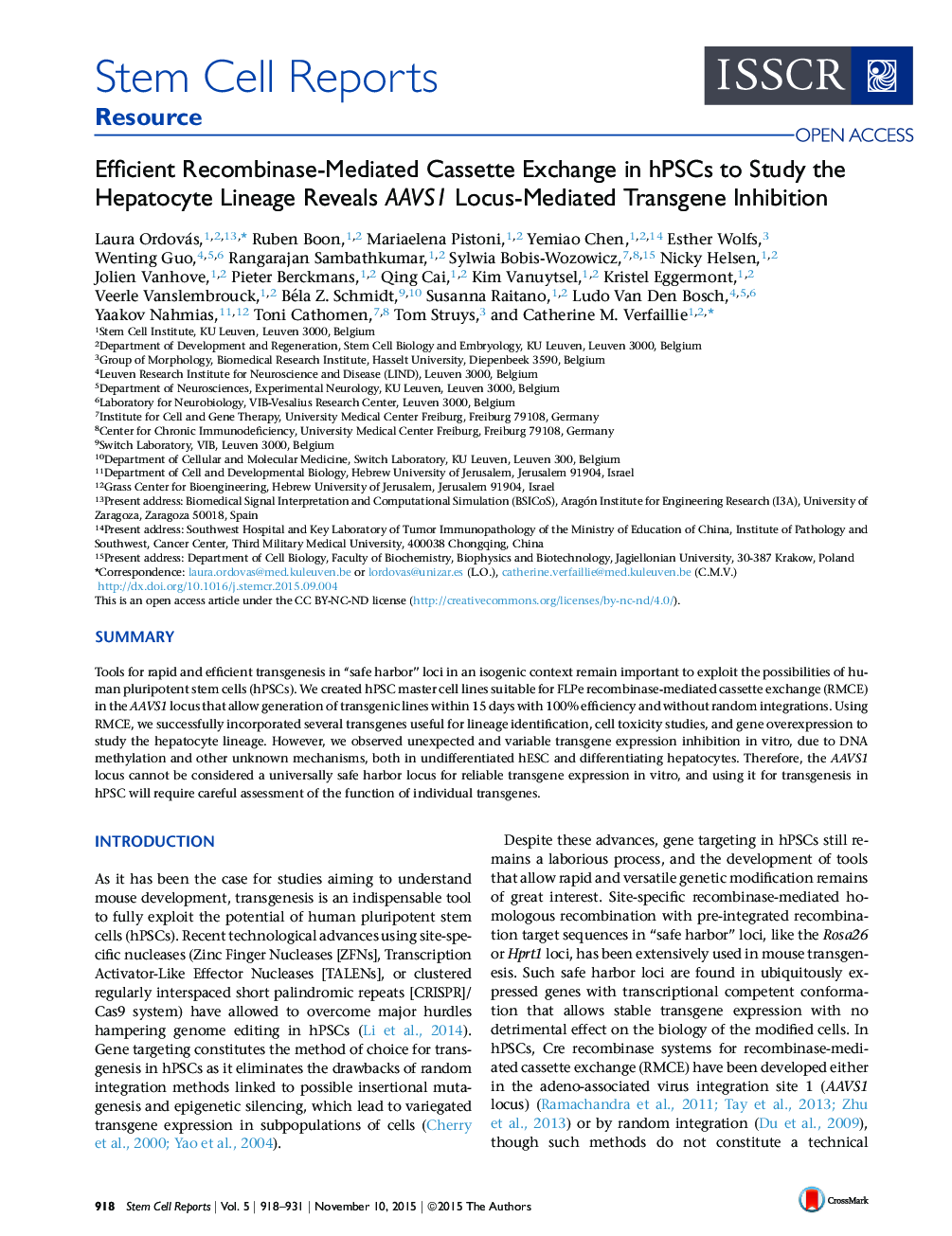| Article ID | Journal | Published Year | Pages | File Type |
|---|---|---|---|---|
| 2093762 | Stem Cell Reports | 2015 | 14 Pages |
•RMCE using positive/negative selection allows generation of transgenic hPSC lines in 15 days•The AAVS1 locus exerts transgene inhibition by inducing de novo DNA methylation•AAVS1-mediated silencing appears sequence and lineage-specific in vitro, yet is not present in vivo•AAVS1 does not meet the requirements to be considered a universal safe harbor locus in vitro
SummaryTools for rapid and efficient transgenesis in “safe harbor” loci in an isogenic context remain important to exploit the possibilities of human pluripotent stem cells (hPSCs). We created hPSC master cell lines suitable for FLPe recombinase-mediated cassette exchange (RMCE) in the AAVS1 locus that allow generation of transgenic lines within 15 days with 100% efficiency and without random integrations. Using RMCE, we successfully incorporated several transgenes useful for lineage identification, cell toxicity studies, and gene overexpression to study the hepatocyte lineage. However, we observed unexpected and variable transgene expression inhibition in vitro, due to DNA methylation and other unknown mechanisms, both in undifferentiated hESC and differentiating hepatocytes. Therefore, the AAVS1 locus cannot be considered a universally safe harbor locus for reliable transgene expression in vitro, and using it for transgenesis in hPSC will require careful assessment of the function of individual transgenes.
